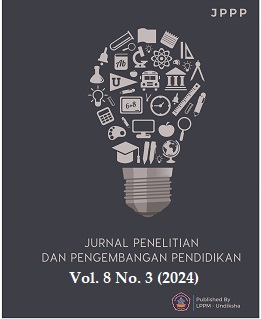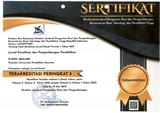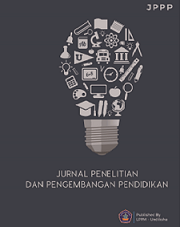Heyzine Website-Based E-Comic for Fourth Grade Elementary School Indonesian Language Subjects
DOI:
https://doi.org/10.23887/jppp.v8i3.78544Keywords:
Digital Learning Media, E-Comic, Interactive MediaAbstract
The less-than-optimal use of digital learning media in encouraging students' active participation in learning impacts low student learning outcomes. This research aims to develop e-comic learning media, describe its suitability, and test its effectiveness in supporting student learning outcomes in class IV Indonesian language subjects. The research used is research and development (R&D) using the ADDIE model. The research subjects were 1 material expert and 1 media expert. The test subjects were teachers and fourth-grade elementary school students. The methods used to collect data are observation, interviews, questionnaires, documentation, and tests. The data collection instruments are questionnaires and test questions. The techniques used to analyze data are qualitative and quantitative descriptive analysis. The results of the research are validity tests by material experts with a percentage of 95.3%, media experts with 88.5%, the user (teacher) tests with 94.2%, small-scale trials at 93.3%, and large scale trials with 86.8%, with N-gain score of 61.2%. From these results, it can be concluded that the e-comics developed are feasible, practical, and effective enough to improve student learning outcomes and are used in Indonesian language learning in class IV elementary schools.
References
Aeni, W. A., & Yusupa, A. (2018). Model Media Pembelajaran E-Komik untuk SMA. Jurnal Kwangsan: Jurnal Teknologi Pendidikan, 6(1), 43–59. https://doi.org/10.31800/jtp.kw.v6n1.p43-59. DOI: https://doi.org/10.31800/jtp.kw.v6n1.p43--59
Afriana, S., & Prastowo, A. (2022). Penggunaan Media Pembelajaran E-Comic dalam Menumbuhkan Motivasi dan Antusiasme Belajar Peserta Didik Sekolah Dasar. Didaktis: Jurnal Pendidikan Dan Ilmu Pengetahuan, 22(1), 41. https://doi.org/10.30651/didaktis.v22i1.11089. DOI: https://doi.org/10.30651/didaktis.v22i1.11089
Agustina, A. (2021). Peningkatan Prestasi Belajar Siswa pada Pelajaran Bahasa Indonesia Materi Menulis Teks Resensi dengan Menerapkan Model Pembelajaran Kooperatif Tipe Think Pair Share (TPS) di Kelas XI MIPA 1 SMAN 2 Bolo Semester II Tahun Pelajaran 2020/2021. Jurnal Pendidikan dan Pembelajaran Indonesia (JPPI), 1(2), 316–327. https://doi.org/10.53299/jppi.v1i2.93. DOI: https://doi.org/10.53299/jppi.v1i2.93
Alamiyah, S. S., Kusuma, A., Juwito, J., & Tranggono, D. (2021). Pergeseran Model Pendampingan Penggunaan Media Digital oleh Orangtua pada Anak di Masa Pandemi COVID-19 Pendahuluan Pandemi COVID-19 telah menyebabkan perubahan pada berbagai aspek kehidupan manusia . Untuk mengatasi dan mengurangi dampak resiko pandemi ,. JCommsci-Journal Of Media and Communication Science, 4(1), 5–12. https://doi.org/10.29303/jcommsci.v4i2.120. DOI: https://doi.org/10.29303/jcommsci.v4i2.120
Amil, A. J., Setyawan, A., & Dellia, P. (2021). Pengembangan Media Pembelajaran Keterampilan Membaca Berbasis Android Pokok Pembahasan Legenda Desa-Desa Di Madura Pada Pembelajaran Bahasa Indonesia Kelas VII SMP Negeri Se-Kabupaten Bangkalan. BASINDO: Jurnal Kajian Bahasa, Sastra Indonesia, dan Pembelajarannya, 5(1). https://doi.org/10.21107/metalingua.v5i2.8628. DOI: https://doi.org/10.21107/metalingua.v5i2.8628
Angga, P. M. W., Sudarma, I. K., & Suartama, I. K. (2020). E-Komik Pendidikan Untuk Membentuk Karakter Dan Meningkatkan Hasil Belajar Siswa Kelas V Pada Mata Pelajaran Bahasa Indonesia. Jurnal Edutech Undiksha, 8(2), 93. https://doi.org/10.23887/jeu.v8i2.28920.
Arifin, A. syamsul, & Lestari, E. S. (2020). Genetics bacterial teaching materials development based on flipbook in microbiology subject to improve learning motivation. JPBIO (Jurnal Pendidikan Biologi), 5(2), 202–211. https://doi.org/10.31932/jpbio.v5i2.862. DOI: https://doi.org/10.31932/jpbio.v5i2.862
Ashirin, N., Lazim, & Putra, Z. H. (2021). Keterampilan Dasar Mengajar Guru Pada Proses Pembelajaran Matematika Di Kelas V Sdn 110 Pekanbaru. Jurnal Pendidikan dan Pengajaran Guru Sekolah Dasar (JPPGuseda), 4(1), 21–24. https://doi.org/10.55215/jppguseda.v4i1.3171. DOI: https://doi.org/10.55215/jppguseda.v4i1.3171
Asnawi, Mulyahati, B., & Fransyaigu, R. (2023). Penguatan Kompetensi Guru Dalam Pelatihan Pembuatan Bahan Ajar “E-Komik” di Sekolah Dasar. Community Development Journal : Jurnal Pengabdian Masyarakat, 4(1), 407–412. https://doi.org/10.31004/CDJ.V4I2.12255.
Asrial, A., Syahrial, S., Maison, M., Kurniawan, D. A., & Perdana, R. (2020). A study of Traditional Games “Engklek” in Mathematics for Elementary School. Jurnal Ilmu Pendidikan, 26(1), 15–21. https://doi.org/10.17977/UM048V26I1P15-21. DOI: https://doi.org/10.17977/um048v26i1p15-21
Awaludin, A., Wibawa, B., & Winarsih, M. (2020). Integral Calculus Learning Using Problem Based Learning Model Assisted by Hypermedia-Based E-Book. JPI (Jurnal Pendidikan Indonesia), 9(2), 224. https://doi.org/10.23887/jpi-undiksha.v9i2.23106. DOI: https://doi.org/10.23887/jpi-undiksha.v9i2.23106
Bakri, F., Putri, A. S. T., & Indrasari, W. (2021). Pocket book based on android: Physics learning practice media in the 21st century. AIP Conference Proceedings, 2320(March). https://doi.org/10.1063/5.0037604. DOI: https://doi.org/10.1063/5.0037604
Berjamai, G. S., & Davidi, E. I. N. (2020). Kajian Faktor-Faktor Penghambat Keterampilan Berpikir Kritis Siswa Kelas V Sekolah Dasar Pada Mata Pelajaran Bahasa Indonesia. Jurnal Literasi Pendidikan Dasar, 1(1). https://doi.org/10.36928/jlpd.v1i1.1856.
Branch, R. M. (2010). Instructional design: The ADDIE approach. In Instructional Design: The ADDIE Approach. https://doi.org/10.1007/978-0-387-09506-6. DOI: https://doi.org/10.1007/978-0-387-09506-6
Darmayanti, N. K., & Surya Abadi, I. B. (2021). Pengembangan Media Pembelajaran Daring Komik Virtual dalam Muatan Materi Gagasan Pokok dan Gagasan Pendukung Bahasa Indonesia. MIMBAR PGSD Undiksha, 9(1), 170. https://doi.org/10.23887/jjpgsd.v9i1.32481. DOI: https://doi.org/10.23887/jjpgsd.v9i1.32481
Darmayasa, I. K., Jampel, N., Simamora, A. H., & Pendidikan, J. T. (2018). Pengembangan E-Modul Ipa Berorientasi Pendidikan Karakter di SMP Negeri 1 Singaraja. Jurnal Edutech Undiksha, 6(1), 53–65. https://doi.org/10.23887/jeu.v6i1.20267.
Dwi agus setiawan, & Nur Kumala, F. (2020). Multimedia Interaktif Tipe Adobe Flash CS6 Berbasis Kurikulum 2013 Dalam Meningkatkan Literasi Verbal Siswa Sekolah Dasar. Jurnal Pendidikan Dasar Nusantara, 6(1), 32–49. https://doi.org/10.29407/jpdn.v6i1.14358. DOI: https://doi.org/10.29407/jpdn.v6i1.14358
Dwiasih, A. A. I., & Agung, A. A. G. (2021). The Development of Fabel E-Comic in Bahasa Indonesia Lesson for Grade II of Elementary School. Advances in Social Science, Education and Humanities Research. https://doi.org/10.2991/assehr.k.210407.284. DOI: https://doi.org/10.2991/assehr.k.210407.284
Fachrunisa, A., Kuncoro, K. S., & Arigiyati, T. A. (2022). Development of Interactive E-Modules Assisted by The Kvisoft Flipbook Maker Application on Algebraic Forms Grade VII. Journal of Mathematics and Mathematics Education, 12(1), 11–20. https://doi.org/10.20961/jmme.v12i1.61091. DOI: https://doi.org/10.20961/jmme.v12i1.61091
Fahmi, A. N., Yusuf, M., & Muchtarom, M. (2021). Integration of Technology in Learning Activities: E-Module on Islamic Religious Education Learning for Vocational High School Students. Journal of Education Technology, 5(2), 282–290. https://doi.org/10.23887/jet.v5i2.35313. DOI: https://doi.org/10.23887/jet.v5i2.35313
Febriani, S. R., Widayanti, R., Amrulloh, M. A., & Mufidah, N. (2020). Arabic Learning for Elementary School during COVID-19 Emergency in Indonesia. OKARA: Jurnal Bahasa dan Sastra, 14(1), 67. https://doi.org/10.19105/ojbs.v14i1.3194. DOI: https://doi.org/10.19105/ojbs.v14i1.3194
Handayani, P., & Koeswati, H. D. (2020). Pengembangan Media Komik Untuk Meningkatkan Minat Membaca Siswa Sekolah Dasar. Jurnal Basicedu, 4(2). https://doi.org/10.31004/basicedu.v4i2.365. DOI: https://doi.org/10.31004/basicedu.v4i2.365
Hapsari, T. P. R. N., & Fitria, A. S. (2020). Efektivitas Pembelajaran Daring Mata Kuliah Evaluasi Pengajaran Bahasa Dan Sastra Indonesia Masa Pandemi Covid-19. Jurnal Ilmiah SEMANTIKA, 2(01), 11–20. https://doi.org/10.46772/semantika.v2i01.259. DOI: https://doi.org/10.46772/semantika.v2i01.259
Hermita, N., Widyanthi, A., Kurniaman, O., & Witri, G. (2020). Implementing Of Structural Analytical Synthetic (SAS) Methods To Improve The Ability Of Early Reading Of Elementary School Students. Jurnal PAJAR (Pendidikan dan Pengajaran), 4(1). https://doi.org/10.33578/pjr.v4i1.7942. DOI: https://doi.org/10.33578/pjr.v4i1.7942
Hobri, Adeliyanti, S., Fatekurrahman, M., Wijaya, H. T., Oktavianingtyas, E., Putri, I. W. S., & Ridlo, Z. R. (2021). E-Comic Mathematics Based on STEAM-CC and its Effect on Students Creative Thinking Ability. Journal of Physics: Conference Series, 1839(1). https://doi.org/10.1088/1742-6596/1839/1/012036. DOI: https://doi.org/10.1088/1742-6596/1839/1/012036
Hobri, Murtikusuma, R. P., & Hermawan, L. I. (2019). Development of e-comic using pixton and kelase web on linear program of two variables assisted by geogebra. Journal of Physics: Conference Series, 1265, 012010. https://doi.org/10.1088/1742-6596/1265/1/012010. DOI: https://doi.org/10.1088/1742-6596/1265/1/012010
Indriasih, A., Sumaji, S., Badjuri, B., & Santoso, S. (2020). Pengembangan E-Comic Sebagai Media Pembelajaran Untuk Meningkatkan Kecakapan Hidup Anak Usia Dini. Refleksi Edukatika: Jurnal Ilmiah Kependidikan, 10(2), 154–162. https://doi.org/10.24176/re.v10i2.4228. DOI: https://doi.org/10.24176/re.v10i2.4228
Jabir, A. (2020). Application Of Sas Method In Improving Beginning Reading Ability In Elementary School. Social, Humanities, and Educational Studies (SHEs): Conference Series, 3(3). https://doi.org/10.20961/shes.v3i3.57025.
Khairunnisa, N. (2021). Penggunaan Aplikasi Videomaker Fx Dalam Pengembangan Media Pembelajaran Bahasa Indonesia. Jubindo: Jurnal Ilmu Pendidikan Bahasa dan Sastra Indonesia, 5(3), 132–141. https://doi.org/10.32938/jbi.v5i3.871. DOI: https://doi.org/10.32938/jbi.v5i3.871
Koyuncu, İ., & Fırat, T. (2020). Investigating reading literacy in PISA 2018 assessment. International Electronic Journal of Elementary Education, 13(2), 263–275. https://doi.org/10.26822/iejee.2021.189. DOI: https://doi.org/10.26822/iejee.2021.189
Kurniawan, Wijayanti, & Hawanti. (2020). Problematika Dan Strategi Dalam Pembelajaran Bahasa Indonesia Di Kelas Rendah Sekolah Dasar. JRPD: Jurnal Riset Pendidikan Dasar, 1(1). https://doi.org/10.30595/.v1i1.7933. DOI: https://doi.org/10.30595/.v1i1.7933
Lauc, T., Jagodić, G. K., & Bistrović, J. (2020). Effects of Multimedia Instructional Message on Motivation and Academic Performance of Elementary School Students in Croatia. International Journal of Instruction, 13(4), 491–508. https://doi.org/10.29333/iji.2020.13431a. DOI: https://doi.org/10.29333/iji.2020.13431a
Lestari, E., Nulhakim, L., & Suryani, D., W. (2022). Pengembangan E-modul Berbasis Flip Pdf Professional“Tema Global Warming Sebagai Sumber Belajar Mandiri Siswa Kelas VII”. Journal of Science Education, 6(2). https://doi.org/10.33369/pendipa.6.2.338-345. DOI: https://doi.org/10.33369/pendipa.6.2.338-345
Machaba, F., & Bedada, T. (2022). University lecturers’ preparedness to use technology in teacher training of mathematics during COVID-19: The case of Ethiopia. South African Journal of Higher Education, 36. https://doi.org/10.20853/36-1-4560No. DOI: https://doi.org/10.20853/36-1-4560
Marliana, L., & Subrata, H. (2023). Keefektifan Penggunaan Media Komik Digital Dalam Kemampuan Membaca Pemahaman Siswa Kelas Iv Sekolah Dasar. JPSD, 11(6), 1274–1283. https://doi.org/10.60004/edupedika.v1i1.1.
Mertasari, P. S., & Ganing, N. N. (2021). Pengembangan Media Pembelajaran Powtoon Berbasis Problem Based Learning Pada Materi Ekosistem Muatan Ipa Kelas V Sekolah Dasar. Jurnal Ilmiah Pendidikan Profesi Guru, 10, 288–298. https://doi.org/10.23887/jippg.v4i2. DOI: https://doi.org/10.23887/jippg.v4i2.32848
Mujahadah, I., Alman, A., & Triono, M. (2021). Pengembangan Media Pembelajaran Komik untuk Meningkatkan Hasil dan Minat Belajar Matematika Peserta Didik Kelas III SD Muhammadiyah Malawili. Jurnal Papeda: Jurnal Publikasi Pendidikan Dasar, 3(1), 8–15. https://doi.org/10.36232/jurnalpendidikandasar.v3i1.758. DOI: https://doi.org/10.36232/jurnalpendidikandasar.v3i1.758
Munandar, R. R., Cahyani, R., & Fadilah, E. (2021). Pengembangan e-modul sigil software untuk meningkatkan hasil belajar siswa di masa pandemi Covid-19. BIODIK: Jurnal Ilmiah Pendidikan Biologi, 7(4), 191–202. https://doi.org/10.22437/bio.v7i4.15204. DOI: https://doi.org/10.22437/bio.v7i4.15204
Mutmainnah, M., Aunurrahman, A., & Warneri, W. (2021). Efektivitas penggunaan e-modul terhadap hasil belajar kognitif pada materi sistem pencernaan manusia di Madrasah Tsanawiyah. Jurnal Basicedu, 5(3), 1625–1631. https://doi.org/10.31004/basicedu.v5i3.952. DOI: https://doi.org/10.31004/basicedu.v5i3.952
Perdana, M. A., Wibowo, D. E., & Budiarto, M. K. (2021). Digitalization of learning media through digital book development using the flipbook application. Jurnal Pendidikan dan Pengajaran, 54, 263–272. https://doi.org/10.23887/jpp.v54i2. DOI: https://doi.org/10.23887/jpp.v54i2.34639
Purwitaningrum, R., & Prahmana, R. C. I. (2021). Developing instructional materials on mathematics logical thinking through the Indonesian realistic mathematics education approach. International Journal of Education and Learning, 3(1), 13–19. https://doi.org/10.31763/ijele.v3i1.178. DOI: https://doi.org/10.31763/ijele.v3i1.178
Rahmata, A., Tuljannah, LaiRahmata, A., Tuljannah, L., Chotimah, S. C., & Fiangga, S. (2020). Validitas E-Comic Matematika Berbasis Pemecahan Masalah pada Materi Kesebangunan. Jurnal Review Pembelajaran Matematika, 5(1), 53–65. https://doi.org/10.15642/jrpm.2020.5.1.53-65. DOI: https://doi.org/10.15642/jrpm.2020.5.1.53-65
Rifa’i, M., & Sunariya, E. (2020). Life Skill Education Through Extracurricular Religion In The Tunadagsa Children In SLBN Gending. International Journal of Education, Information Technology, and Others, 3(2). https://doi.org/10.5281/zenodo.3991379.
Rokhim, D. A., Widarti, H. R., & Fajaroh, F. (2020). Pengembangan Bahan Belajar Flipbook pada Materi Redoks dan Elektrokimia Berbasis Pendekatan STEM-PjBL Berbantuan Video Pembelajaran. Kwangsan: Jurnal Teknologi Pendidikan, 8(2), 234–250. https://doi.org/10.31800/jtp.kw.v8n2.p234--250. DOI: https://doi.org/10.31800/jtp.kw.v8n2.p234--250
Rusydiyah, E. F., Indrawati, D., Jazil, S., Susilawati, & Gusniwati. (2021). Stem learning environment: Perceptions and implementation skills in prospective science teachers. Jurnal Pendidikan IPA Indonesia, 10(1), 138–148. https://doi.org/10.15294/jpii.v10i1.28303. DOI: https://doi.org/10.15294/jpii.v10i1.28303
Sakinah, G. S., Indrawadi, J., Suryanef, S., & Ernawati, E. (2023). The Development of E-Modules of Pancasila Education Learning with the Flipbook Application. Scaffolding: Jurnal Pendidikan Islam Dan Multikulturalisme, 5(3), 601–631. https://doi.org/10.37680/scaffolding.v5i3.3815. DOI: https://doi.org/10.37680/scaffolding.v5i3.3815
Saputra, I. M. P., & Putra, D. K. N. S. (2021). Pengembangan Media Pembelajaran Multimedia Interaktif dengan Model Hannafin and Peck pada Muatan IPA Kelas IV. Mimbar Ilmu, 26(1), 88. https://doi.org/10.23887/mi.v26i1.32085. DOI: https://doi.org/10.23887/mi.v26i1.32085
Septiani, M. T., & Hasanah, M. (2019). Media Audio Visual untuk Pembelajaran Musikalisasi Puisi. BASINDO : jurnal kajian bahasa, sastra Indonesia, dan pembelajarannya, 3(1), 31–37. https://doi.org/10.17977/um007v3i12019p031. DOI: https://doi.org/10.17977/um007v3i12019p031
Simatupang, H., Sianturi, A., & Alwardah, N. (2020). Pengembangan Lkpd Berbasis Pendekatan Science, Technology, Engineering, and Mathematics (Stem) Untuk Menumbuhkan Keterampilanberpikir Kritis Siswa. Jurnal Pelita Pendidikan, 7(4), 170–177. https://doi.org/10.24114/jpp.v7i4.16727. DOI: https://doi.org/10.24114/jpp.v7i4.16727
Siregar, N., Suherman, Rubhan Masykur, & Rahma Sari Ningtias. (2019). Pengembangan Media Pembelajaran E-Comic Dalam Pembelajaran Matematika. Journal of Mathematics Education and Science, 2(1), 11–19. https://doi.org/10.32665/james.v2i1.47. DOI: https://doi.org/10.32665/james.v2i1.47
Sudarma, I. K., Angga, P. M. W., & Suartama, I. K. (2020). E-Komik Pendidikan Untuk Membentuk Karakter Dan Meningkatkan Hasil Belajar Siswa Kelas V Pada Mata Pelajaran Bahasa Indonesia. Jurnal Edutech Undiksha, 8(2), 93–106. https://doi.org/10.23887/jeu.v8i2.28920. DOI: https://doi.org/10.23887/jeu.v8i2.28920
Supartayasa, I. K. R., & Wibawa, I. M. C. (2022). Belajar Siklus Air dengan Media Komik Digital Berbasis Tri Hita Karana. Jurnal Pedagogi dan Pembelajaran, 5(1), 127–137. https://doi.org/10.23887/jp2.v5i1.46279. DOI: https://doi.org/10.23887/jp2.v5i1.46279
Syahmi, F. A., Ulfa, S., & Susilaningsih. (2022). Pengembangan Media Pembelajaran Komik Digital Berbasis Smartphone Untuk Siswa Sekolah Dasar. JKTP: Jurnal Kajian Teknologi Pendidikan, 5(1), 81–90. https://doi.org/10.17977/um038v5i12022p081. DOI: https://doi.org/10.17977/um038v5i12022p081
Taufiq, M., Wijayanti, A., & Fajriah, E. (2020). The implementation of e-comic earth layer to enhance students’ self-directed learning. Journal of Physics: Conference Series, 1567, 022070. https://doi.org/10.1088/1742-6596/1567/2/022070. DOI: https://doi.org/10.1088/1742-6596/1567/2/022070
Udayani, N. K. Ar. T. K., Wibawa, I. M. C., & Rati, N. W. (2021). Development Of E-Comic Learning Media On The Topic Of The Human Digestive System. Journal of Education Technology, 5(3), 472–481. https://doi.org/10.23887/jet.v5i3.34732. DOI: https://doi.org/10.23887/jet.v5i3.34732
Ula, I. R., & Fadila, A. (2018). Pengembangan E-Modul Berbasis Learning Content Development System Pokok Bahasan Pola Bilangan SMP. Desimal: Jurnal Matematika, 1(2), 201. https://doi.org/10.24042/djm.v1i2.2563. DOI: https://doi.org/10.24042/djm.v1i2.2563
Utami, R. D. (2020). Critical reading skills through multimodal text to upper-class students in elementary school. International Journal of Innovation, Creativity and Change, 11(5), 127–137.
Wahyu, Y., Edu, A. L., & Nardi, M. (2020). Problematika Pemanfaatan Media Pembelajaran IPA di Sekolah Dasar. Jurnal Penelitian Pendidikan IPA, 6(1), 107–112. https://doi.org/10.29303/jppipa.v6i1.344. DOI: https://doi.org/10.29303/jppipa.v6i1.344
Wardoyo, S., Armariena, D. N., & Prasrihamni, M. (2022). Pengaruh Media Diorama Terhadap Hasil Belajar Bahasa Indonesia Siswa Kelas III di Sekolah Dasar. Jurnal Penelitian Indonesia Tentang Pendidikan, 2(2). https://doi.org/10.31004/irje.v2i2.200. DOI: https://doi.org/10.31004/irje.v2i2.200
Warju, W., Ariyanto, S. R., Soeryanto, S., Hidayatullah, R. S., & Nurtanto, M. (2020). Practical Learning Innovation: Real Condition Video-Based Direct Instruction Model in Vocational Education. Journal of Educational Science and Technology (EST), 6(1), 79–91. https://doi.org/10.26858/est.v6i1.12665. DOI: https://doi.org/10.26858/est.v6i1.12665
Wicaksana, I. P. G. C. R., Agung, A. A. G., & Jampel, I. N. (2019). Pengembangan E-Komik Dengan Model ADDIE Untuk Meningkatkan Minat Belajar Tentang Perjuangan Persiapan Kemerdekaan Indonesia. Jurnal EDUTECH Universitas Pendidikan Ganesha, 7(2), 48–59. https://doi.org/10.23887/jeu.v7i2.23159. DOI: https://doi.org/10.23887/jeu.v7i2.23159
Wirganata, F., Agustuni, K., & Saindra Santyadiputra, G. (2019). Efektivitas Media E-Modul Berbasis Schoology. Jurnal Nasional Pendidikan Teknik Informatika (JANAPATI), 7(2), 132. https://doi.org/10.23887/janapati.v7i2.13132. DOI: https://doi.org/10.23887/janapati.v7i2.13132
Downloads
Published
How to Cite
Issue
Section
License
Copyright (c) 2024 TIARA ASTI

This work is licensed under a Creative Commons Attribution-ShareAlike 4.0 International License.
Authors who publish with the Jurnal Penelitian dan Pengembangan Pendidikan agree to the following terms:
- Authors retain copyright and grant the journal the right of first publication with the work simultaneously licensed under a Creative Commons Attribution License (CC BY-SA 4.0) that allows others to share the work with an acknowledgment of the work's authorship and initial publication in this journal.
- Authors are able to enter into separate, additional contractual arrangements for the non-exclusive distribution of the journal's published version of the work (e.g., post it to an institutional repository or publish it in a book), with an acknowledgment of its initial publication in this journal.
- Authors are permitted and encouraged to post their work online (e.g., in institutional repositories or on their website) prior to and during the submission process, as it can lead to productive exchanges, as well as earlier and greater citation of published work. (See The Effect of Open Access)








